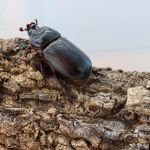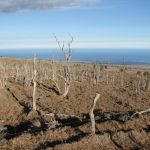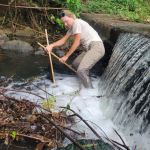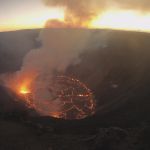PI-CASC NEWS

Protecting Communities and Ecosystems from the Coconut Rhinoceros Beetle
Partner organizations come for a two-day symposium to share lessons learned from across the Pacific on the prevention, control, and management of the invasive CRB.

A fellowship creates online resources for drought solutions
PI-CASC funds a Pacific Drought Knowledge Exchange fellowship helping to expand its efforts in Hawaiʻi.

Climate impacts on native and non-native fishes in Hawaiian streams
Graduate Scholar Leigh Engels is a masterʻs student researching how extreme events affect native and non-native fish in Hawaiian streams.

Researcher Spotlight: Elliott Parsons
A look at Elliott Parsonsʻ journey in climate science and invasive species.

Wrapping up another summer of SURF
The 2024 SURF program ended in August after a Final Symposium, wrapping up a successful summer of research and learning.

PI-CASC Scientists Showcase Climate Adaptation Research at HCC
Researchers led workshops and presented on the PI-CASC's crucial work in climate adaptation science at the Hawaiʻi Conservation Conference.

Scientists investigate the complexity of coral resilience against thermal stress
What makes corals resilient to bleaching? The answer is complex.

USGS PI-CASC project to develop advanced monitoring tools for unique Jellyfish Lake in Palau
A new U.S. Geological Survey research project through PI-CASC aims to assist monitoring efforts and develop forecasting tools for Ongeim’l Tketau, commonly known as Jellyfish Lake, in the Republic of Palau.

“The Mysteries of Kīlauea and the Hawaiian Islands”: PI-CASC’s interactive geonarrative
PI-CASC Education Hub launched an interactive Kīlauea visual educational tool that incorporates four Next Generation Science Standards (NGSS) aligned lessons that weave Hawaiian moʻolelo (story) and art.

Emerging technologies used to monitor coral bleaching in Guam, CNMI
In anticipation of coral bleaching events, Pacific Islands look to emerging technologies for faster, more accurate monitoring efforts.

